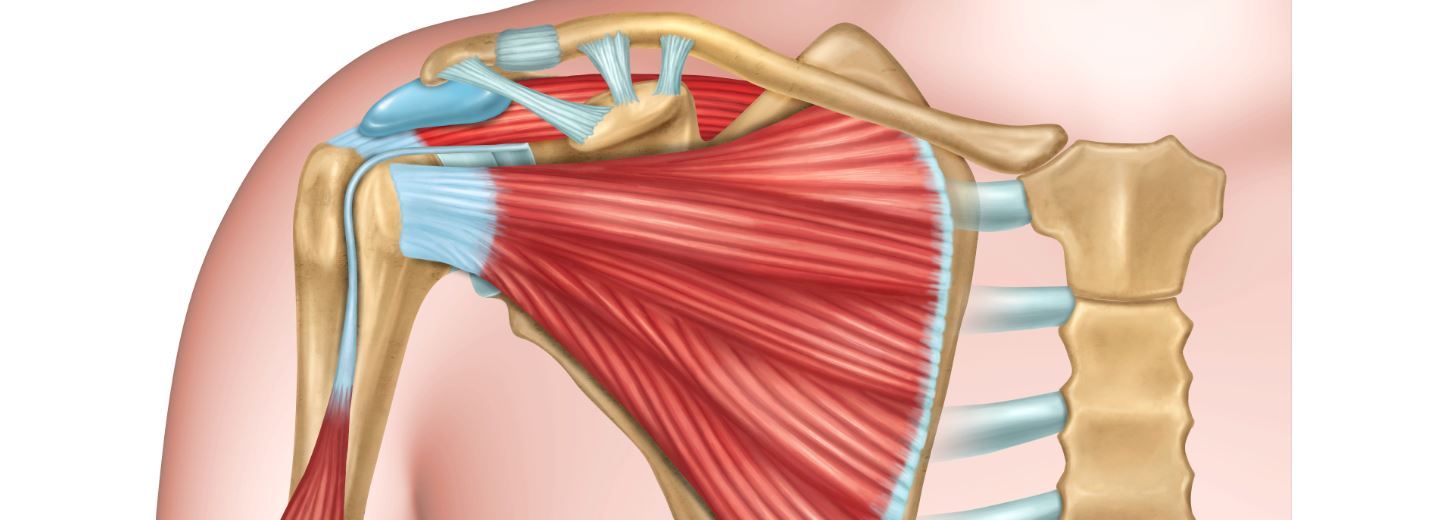How long does a shoulder replacement last?
Shoulder replacement surgeries are more common in the United States as a treatment for end-stage degenerative conditions. Researchers writing in the current issue of The Lancet Rheumatology, find that most shoulder replacements last longer than 10 years.
(©AndreaDanti,AdobeStock)

According to researchers writing in the current issue of The Lancet Rheumatology, 90 percent of shoulder replacements last longer than 10 years.
Shoulder replacement surgeries are increasingly becoming more common in the United States as a treatment for end-stage degenerative shoulder conditions.
This was a systematic review and meta-analysis that included studies from MEDLINE and Embase from inception to Sept 24, 2019. The study was limited to case series and registry data of at least 10-years, or longer, survival of total shoulder replacements, humeral hemiarthroplasties, and reverse total shoulder replacements of an implant.
The final analysis was based on the results of nine studies that focused on survival and six articles on patient-reported outcomes. The estimated 10-year survival was 94.6% for total shoulder replacements and 90.4 percent for humeral hemiarthroplasties. The pooled registry 10-year survival was 92 percent for total shoulder replacement; 85.5 percent for humeral hemiarthroplasties; 94.4 percent for patients with osteoarthritis who had reverse total shoulder replacement; and, 93.6 percent for patients with rotator cuff arthropathy who had reverse total shoulder replacement. A pooled 10-year patient-reported outcome measures showed substantial improvements from baseline scores with a standardized mean difference of 2.13.
Shoulder replacements increased in the United States increased between 1993 to 2008, which is, in part, due to the approval of a reverse shoulder arthroplasty device that was approved by the U.S. Food and Drug Administration in 2003, write Nitin B. Jain, M.D., and Ken Yamaguchi, M.D., in a report published in 2014 in the Journal of Shoulder Elbow Surgery. “The cumulative estimated utilization of primary shoulder arthroplasty (total anatomical, hemi, and reverse) increased significantly from 52,397 procedures in 2009 to 67,184 cases in 2011 with the highest rate of reverse shoulder arthroplasty in women between 75–84 years old.” Revisions accounted for 8.2 percent of all shoulder arthroplasties in 2011 with 35 percent due to secondary to mechanical complications and 18 percent due to dislocations.
“The number of shoulder replacements done has continued to increase over the past two decades, partly because of their efficacy in relieving pain and improving range of motion. Patients with shoulder pathologies can undergo total shoulder replacements, humeral hemi replacements, or reverse total shoulder replacements, depending on the bone and concomitant soft tissue and muscle damage. Although these procedures are highly successful, as with any operation, they are not without potential postoperative risks, such as implant failure and infection, which can result in the need for revision surgeries. Over the past few decades, substantial advancements have been made regarding implant design and surgical technique, both of which can help improve implant longevity. However, as with any joint replacement, over time implants will fail,” write Nipun Sodhi and Michael A. Mont in a commentary that accompanied the study.
______________
REFERENCES
Jonathan P Evans, MD, Jonathan T Evans, MD, Richard S Craig, FRCS, et al. “How long does a shoulder replacement last? A systematic review and meta-analysis of case series and national registry reports with more than 10 years of follow-up.” The Lancet Rheumatology. Published :September, 2020DOI:https://doi.org/10.1016/S2665-9913(20)30226-5
Nitin B. Jain, MD, MSPH; and, Ken Yamaguchi, MD, MBA. Journal Shoulder Elbow Surg. 2014 Dec; 23(12): 1905–1912. Published online 2014 Oct 7. doi: 10.1016/j.jse.2014.06.055